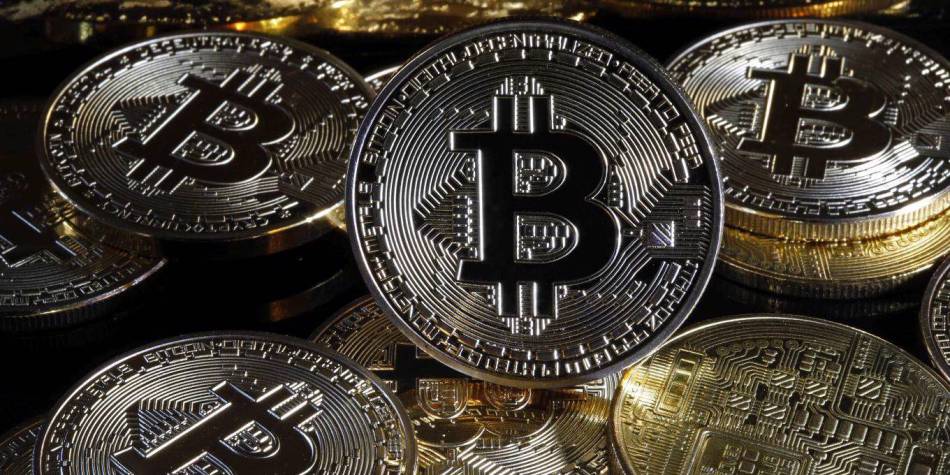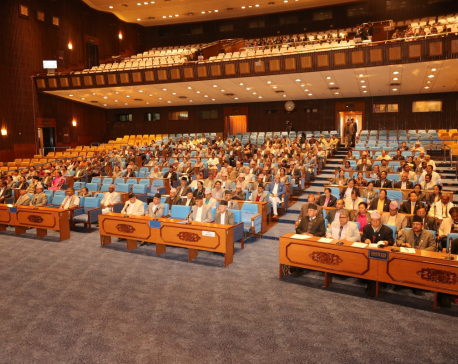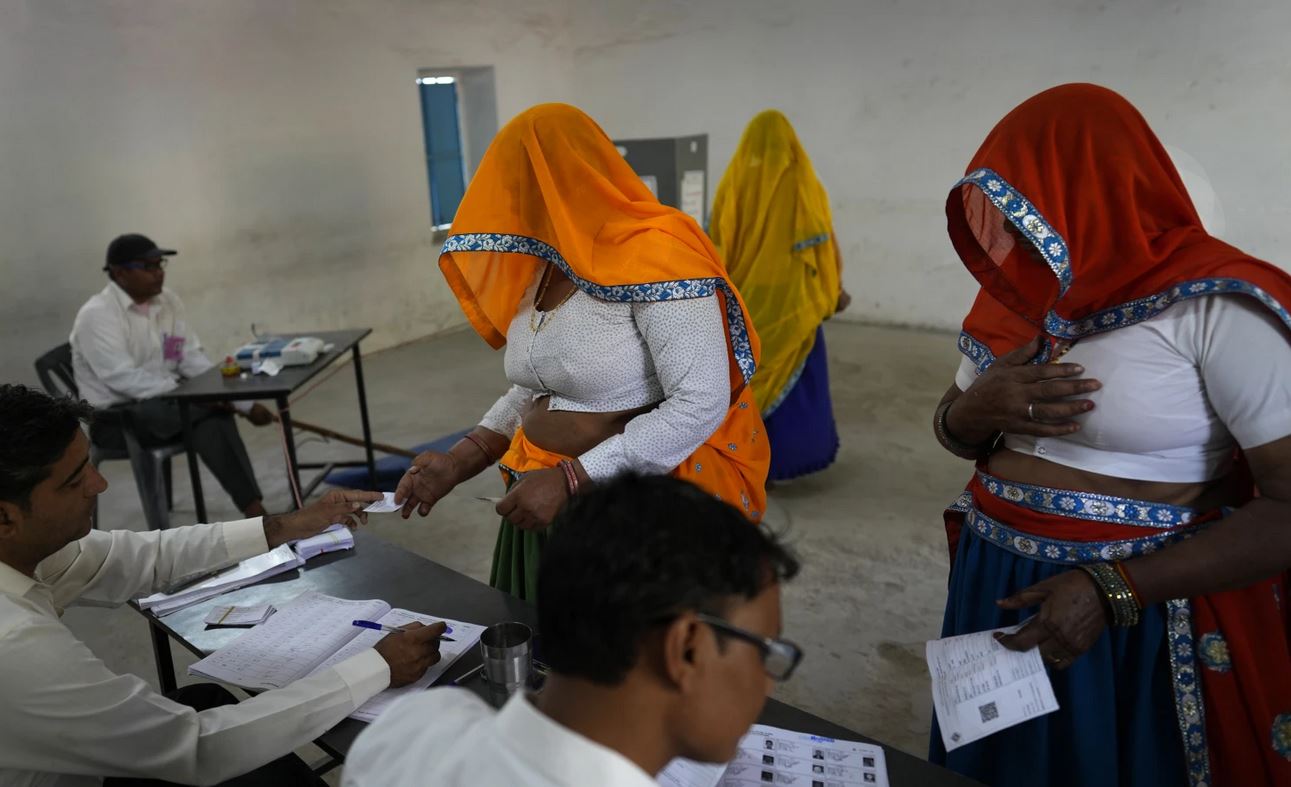
OR
Opinion
The New Zeitgeist: Bitcoin and Flatpack Democracy
Published On: June 6, 2022 12:15 PM NPT By: Bimal Pratap Shah

The fact that politically unaffiliated dynamic young candidates like Balen Shah and Harkaraj Sampang Rai were elected as the mayors of two big cities of Nepal shows a new local political movement has arrived in Nepal as well. This type of political movement is known as Flatpack Democracy - a small-scale revolution that is bringing real change to local politics. Citizens are reclaiming their respective cities from political parties.
Bitcoin is a derivative of the neoliberal economic policy’s extensive liberalization, deregulation, and privatization coupled with Silicon Valley’s crypto-anarchists movement. Bitcoin has the potential to cure many dysfunctions of the modern financial system by solving the issues that come with double-spending because the architecture is such that falsification of transactions is practically impossible. Bitcoin, however, is not only solving some of the problems of the current approach to finance but also showing new ways of organizing civilization for the digital age.
Bitcoin is the first digital currency built in a decentralized manner and it is well-positioned to serve as currency because it satisfies the four main technical properties of money. It is durable, divisible, fungible, easily transportable, and impossible to counterfeit. There aren’t any people or institutions controlling it from behind. It is also not backed by physical goods like precious metals. Its brilliance lies in simple mathematical rules agreed upon by everyone and controlled by no one. As a result, it is not only attractive to cyberpunks, but also for many people as it can be transmitted anywhere in the world without paying an enormous amount of fees charged by increasingly exploitative government-sanctioned financial institutions. More importantly, it has the potential to become the global currency of the Internet, potentially replacing the existing international payment architecture that is not working that well for the Internet.
Money is a radical human invention used to effectively organize civilization. The main role of this novel invention is to communicate the price of goods to allow people to trade in a socially accepted standard of payment. It is also an abstraction of value used as the basis for social interaction and even a language used to communicate the value of a product or a service. It has evolved to such an extent that global trade is possible, but it is not evolving at the pace desired by the Internet.
Since its inception, thousands of years ago, money has changed from shells to precious metals to paper to plastic to digital. Now, we have Bitcoin - the first network-centric protocol-based form of money existing without reference to an institutional or platform context. It uses peer-to-peer (P2P) network architecture on top of the Internet, meaning the computers that participate in the network are peers to each other. There are no special nodes so every node is equal. The network nodes interconnect in a mesh network within a flat topology (without server and centralized services, and non hierarchical structure) in the network. In short, decentralization of control is the core design principle of Bitcoin.
Bitcoin also symbolizes a fundamental transformation of money. It is not a system based on debt but based on ownership of the abstract token. It is programmable money with endless potential. Many concepts of the current system of legal contracts now can be converted into algorithmic contracts and into mathematical transactions that can be enforced on the network, making radical restructuring of society possible. The hierarchical organization designed for the 18th Century world to effectively organize and communicate at a large scale will have to be re-imagined for the 21st Century. For instance, representative democracy and centralized governance which were really smart inventions of the First and the Second Industrial Revolutions are slowly becoming dysfunctional for the age of the Fourth Industrial Revolution.
Bitcoin’s architecture gives us a new way of organizing the world just the way the internet flattened access to communication. Now, anyone with talent can use the platforms like YouTube, TikTok, Twitter, and Instagram to reach millions of people around the world at no cost. Similarly, every person in the future will have the ability not only to execute transactions on the Bitcoin network but also to create complex financial systems and instruments without needing permission. In a truly decentralized architecture, anyone can start a new application by simply connecting to the network. One advantage of decentralization of power is that one person or a tiny minority cannot make changes in a dictatorial manner.
In a centralized system, the further out one in the structure, the authority to make decisions and access to resources decreases. For example, an individual’s power in a modern political party, bureaucracy, police, and military pyramid depends on their position in the hierarchy. Bitcoin changes everything. Bitcoin network flattens hierarchies and every node on the network has equal access to all of the financial services. This concept can be learned to create a flat organization, especially in political parties and bureaucracy. A flat organization structure is defined by a lack of hands-on management, a high degree of autonomy, and everyone empowered to make important decisions for the organization. Flat organizations are flexible and highly adaptive to change.
The change is long overdue because, in a centralized system, decision-making often favors the politicians/political parties and not the citizens. On average globally, a tiny minority of the total eligible voters are members of political parties which also means a small minority is making decisions on behalf of everyone. This arrangement has not worked too well for extremely corrupt countries and sparked a new local political movement where a growing number of independent candidates are overtaking big political parties to lead their communities at the local level. The fact that politically unaffiliated dynamic young candidates like Balen Shah and Harkaraj Sampang Rai were elected as the mayors of two big cities of Nepal shows the movement has arrived in Nepal as well. This type of political movement is known as Flatpack Democracy - a small-scale revolution that is bringing real change to local politics. Citizens are reclaiming their respective cities from political parties.
Coming back to Bitcoin, it has gained prominence as a currency but calling it digital money is a misnomer. Digital currencies have existed since the 1970s. Less than 8 percent of the world’s major currencies exist in physical form.The rest exist in digital form on ledgers that are controlled by centralized organizations like central banks and banks. Bitcoin is a cryptocurrency - network-centric money. A network that allows you to replace trust in hierarchical institutions (big governments and big banks) with trust in the network. The design of the network acts as a referee of truth, resolving any disagreements about transactions and security in a way where no one is exerting an authoritative position like in the centralized system.
Contrary to the popular belief, Bitcoin is not a Ponzi scheme because there aren’t any central operators paying returns to investors from new capital inflows nor a mechanism to deflect funds from new investments to pay returns. Bitcoin has already changed the way people think about money. For now, Bitcoin shows the way forward to building neutral transnational money for the Internet that is decentralized and borderless.
It is highly unlikely that Bitcoin will replace fiat currency. The world is more likely to use Central Bank Digital Currency in the future, but, Bitcoin will still be there catalyzing rethink around the world. Nepal does not need an 18th Century style federal system requiring bloated bureaucracy and parliament, but decentralized governance over the digital network.
You May Like This

Austrian Economics: The Theoretical Roots of Bitcoin
Bitcoin is banned in many fascist countries even though it is a radical idea based on a sound economic theory.... Read More...

Nepal: Sliding Slowly into the Slippery Slope of Hyperinflation!
The Debt to GDP ratio has reached 41.5% and the debt figure amounted to NRs 2 trillion this year. So,... Read More...

HoR meeting: Parliamentarians focus on making independent economy
KATHMANDU, May 27: Taking part in Wednesday’s meeting of the House of Representatives (HoR) on the government's annual policies and... Read More...

Just In
- Indians vote in the first phase of the world’s largest election as Modi seeks a third term
- Kushal Dixit selected for London Marathon
- Nepal faces Hong Kong today for ACC Emerging Teams Asia Cup
- 286 new industries registered in Nepal in first nine months of current FY, attracting Rs 165 billion investment
- UML's National Convention Representatives Council meeting today
- Gandaki Province CM assigns ministerial portfolios to Hari Bahadur Chuman and Deepak Manange
- 352 climbers obtain permits to ascend Mount Everest this season
- 16 candidates shortlisted for CEO position at Nepal Tourism Board







_20220508065243.jpg)











Leave A Comment